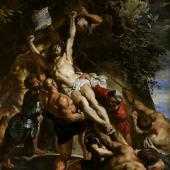Jesus offers three conflict-resolving strategies

September 10, 2023, 23rd Sunday in Ordinary Time
Sunday Readings: First Reading: Ezek 33:7-9, Ps 95:1-2, 6-7, 8-9 ; Second Reading: Rom 13:8-10, Gospel: Matthew 18:15-20
The task of a sentinel is to watch over his people and warn them of impending dangers. People’s response will decide their future: safety and security or destruction. Irrespective of their response, the sentinel is expected to carry out his/her responsibility. It is a strategy to face adequately ad extra issues of a village/town or a country.
What happens to ad intra situations? How does one face them? S/He can retaliate or confront negotiate or adjudicate forgive, forget, and move on in life. The choice of an individual will reveal his/her state of life and the depth of spirituality. The choice is to either win over a person or lose him/her. A person can also choose to be indifferent to certain persons or states of affairs. Holy indifference of St. Ignatius of Loyola is always a better option!
The First Reading from the Book of Ezekiel is a brief exhortation that consists of a message to the prophet himself. The Lord reminds Ezekiel of his duty as a watchman. People used to go outside the walls of the city to work in their fields. A sentinel is supposed to watch over them and warn them if enemies come to attack them.
People who hear the warnings of the guard will immediately leave their fields and return home. If they do not they perish because of their own negligence. The watchman is not at fault. If the sentry fails to announce the peril and the people perish it is his/her failure. He is accountable and will duly be punished for his blunder.
Symbolically, this instruction of the Lord leaves a clear message. A prophet is supposed to proclaim. His concern is to carry out his duty. The people have a choice to make either to pay attention and safeguard themselves or perish due to their disobedience.
The Responsorial Psalm invites the believers to listen to God’s voice/message with open minds and hearts. The psalmist invites the believers to sing joyfully to the Lord because He is the rock of our salvation. When the believers come to God’s presence their attitude should be one of gratitude for what God has done to His people.
The relationship between God and His people is metaphorically compared to the shepherd and the sheep. As the shepherd guides his flock, the Lord God guides His people. The author recalls the experience of Moses in the Books of Exodus (17:7) and Numbers (20:13, 24). Coming under severe pressure of his people and his own lack of trust, Moses disobeys God and inherits his wrath and thus is forbidden to enter the Promised Land.
In the Second Reading taken from St. Paul’s Letter to the Romans, the apostle tries to tell the recipients of the letter that “love is the plenitude of the law” (13:10). After enumerating five of the Ten Commandments which deal with our neighbor, Paul says that all the laws find their fulfillment in the love of neighbor.
He chooses only those commandments which directly deal with neighbors for a particular reason. Love is not just a feeling of affection, a sentiment of fondness, or warm and glowing affinity. Love in reality seeks the common good. Vertical relationship is as imperative as horizontal. A group is more important than an individual. Yes! Love does no evil to the neighbor!
The Gospel Reading is taken from the prominent Community Discourse from the Gospel of Matthew. It contains a program of conflict resolution and deals with the process of winning an erring brother or sister. Jesus offers three conflict-resolving strategies when one is confronted by the sin of a member of the community. One speaks of care-frontation in today’s world. The first approach is a private, one-to-one approach. It can go off peacefully if the people concerned are willing to settle the issue amicably without justifying each other’s position.
The second approach is semi-public as one seeks the intervention of two or three persons who are expected to be acceptable to both. These are negotiators or witnesses. It avoids favoritism and is expected to be objective.
The third strategy is more public where the Church community plays a significant role. It is a sign of concerted effort and perseverance. Many heads mean many perspectives and better means to find a solution. Perhaps it is the last attempt. This is adjudication. Sin is after all an interpersonal offence and an interpersonal approach would have been preferable.
This process of community building guarantees God’s/Jesus’ presence, “For where two or three are gathered in my name, there am I in the midst of them” (Matt 18:20).
Radio Veritas Asia (RVA), a media platform of the Catholic Church, aims to share Christ. RVA started in 1969 as a continental Catholic radio station to serve Asian countries in their respective local language, thus earning the tag “the Voice of Asian Christianity.” Responding to the emerging context, RVA embraced media platforms to connect with the global Asian audience via its 21 language websites and various social media platforms.














